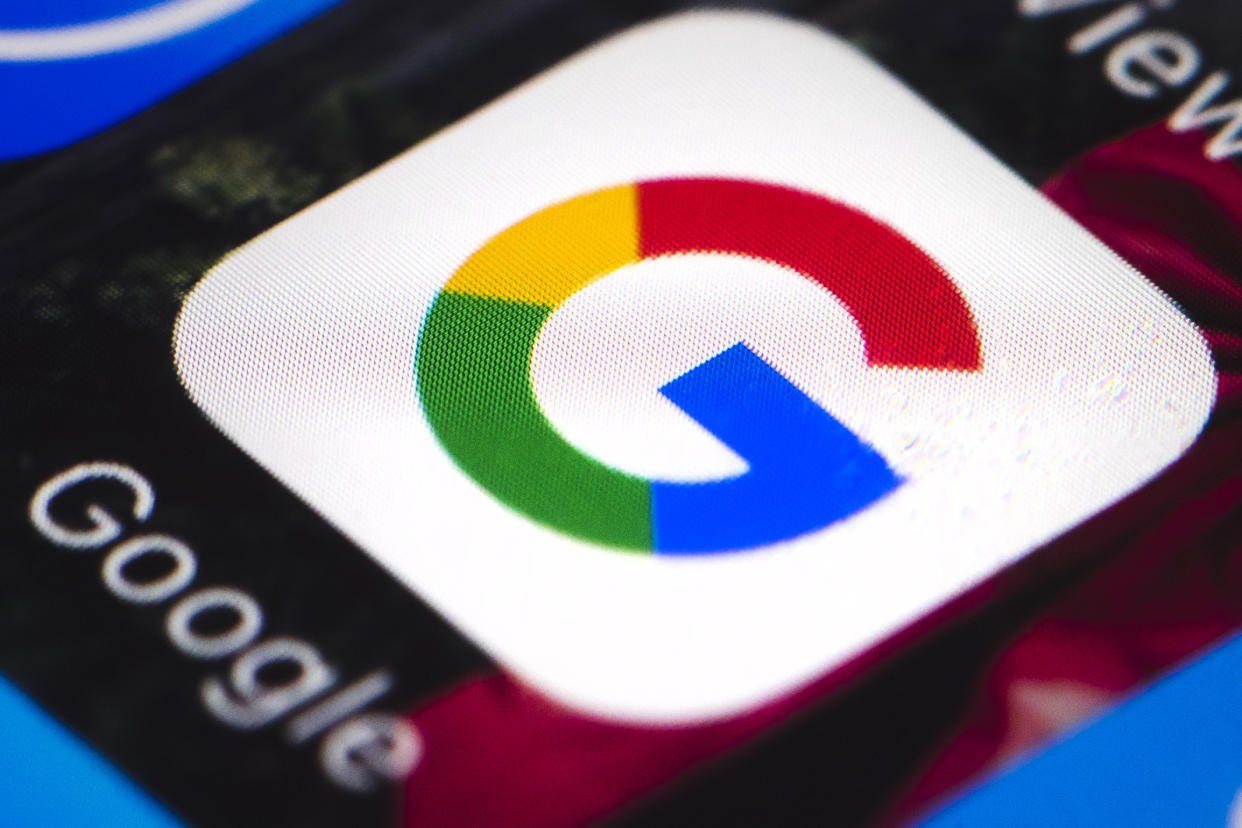Google sued by states alleging Play Store fees violate antitrust law
Google’s (GOOG, GOOGL) app store, Google Play, became the latest target of Big Tech antitrust regulators Wednesday in a federal lawsuit filed by dozens of attorneys general led by the state of Utah.
The case, brought in U.S. District Court for the Northern District of California, is one of dozens of lawsuits that Google’s parent company Alphabet is facing in a wave of actions around the globe challenging tiers of its dominant markets.
In the complaint, the states accuse Google of illegally operating monopolies in the market for Android app distribution by imposing technical barriers that prevent third parties from distributing apps outside the Play Store. According to the complaint, Google controls 99% of the "licensable" market.
"Android is the only viable operating system available to license by mobile device manufacturers that market and sell their devices to U.S. consumers," the lawsuit states, noting a distinction Google has from its competitor Apple (AAPL) that is also facing antitrust scrutiny over its App Store.
The suit added: "The barriers to entry in the licensable mobile operating system market are high, and even highly resourced entrants, such as Microsoft (MSFT) and Amazon (AMZN) have failed."
To stifle competition, the states allege, Google uses contracts to prevent original equipment manufacturers (OEMs) from circumventing the technical barriers, and to block competing app stores from distribution on the Play Store. The states also say Google unlawfully ties advertising to the Google Play store, and shares monopoly profits with OEMs to disincentive competing app stores from entering the market.
The attorneys general are asking for monetary damages, and for the court to impose other remedies to stop Google's allegedly anticompetitive conduct.
In a statement made before the suit was filed, a Google spokesperson defended the company's app store policies, notably distinguishing it from its rival Apple and the App Store.
"Android is the only major operating system that allows people to download apps from multiple app stores," the spokesperson said. "In fact, most Android devices ship with two or more app stores preinstalled. They can also install additional app stores or apps directly from their browser if they choose."
Google Play facing scrutiny over fees
In addition to the action by the attorneys general, Google's Play Store is the subject of an antitrust suit filed by "Fortnite" developer Epic Games. In that suit, the video game maker says that Google abuses its monopoly power through its app store by forcing developers to use its proprietary payment system, which charges a 30% commission on all purchases.
Epic's battle with Google, however, has taken a backseat to the video game developer's fight with Apple over the iPhone maker's own similar App Store policies requiring developers to pay fees on purchases made by consumers. Epic's case against Apple went to trial in May, and a ruling is expected this summer. Epic's case against Google could go to trial shortly thereafter.

Google's antitrust issues with the Play Store aren't limited to the state attorneys general or Epic, though. The company is also facing a class action suit in Northern California over its app store fees.
And it's not just Google's Play Store that is the subject of intense antitrust scrutiny. Antitrust regulators across various agencies are taking aim at a number of aspects of Google’s wide-ranging businesses.
The Justice Department, for example, sued Google in October, along with attorneys general, alleging the tech giant used anti-competitive tactics to maintain and extend its monopolies in general search services, search advertising, and general search text advertising markets — the cornerstones of its empire.
In December, a bipartisan group of attorneys general filed a complaint accusing Google of illegally using exclusionary contracts with Apple (AAPL) and other mobile device providers to make Google the default search engine on devices and services including the iPhone.
That same month, a separate set of attorneys general alleged in a lawsuit that Google’s ad tech business violates antitrust laws by trying to crush competition with exclusionary tactics, including striking a deal with Facebook (FB) — its biggest competitor — to manipulate advertising auctions.

Google is also facing legal pressure overseas. On June 22, the European Commission, the European Union's antitrust watchdog, announced a formal investigation into Google’s ad tech dominance.
In the United Kingdom, authorities are also probing app store rules. Australian authorities have given Apple and Google one year to open up their respective app stores to competition or face other mitigation measures that could include legislation.
The Google suits are part of a larger reckoning for the tech industry. The Federal Trade Commission (FTC) and a coalition of states attorneys general, for instance, filed two separate antitrust suits against Facebook, with the FTC seeking to break up the social media giant. On June 28, however, a federal judge issued opinions dismissing both cases on separate grounds.
Amazon, meanwhile, is facing its own investigations by the attorneys general of New York and California, as well as the FTC. Apple is also in the government's crosshairs with the DOJ conducting an investigation into its App Store policies.
And last month, the House Judiciary Committee advanced a series of six proposed bipartisan antitrust bills that could force some companies to break off parts of their businesses.
Alexis Keenan is a legal reporter for Yahoo Finance and former litigation attorney. Follow Alexis Keenan on Twitter @alexiskweed.
Got a tip? Email Daniel Howley at dhowley@yahoofinance.com over via encrypted mail at danielphowley@protonmail.com, and follow him on Twitter at @DanielHowley.
